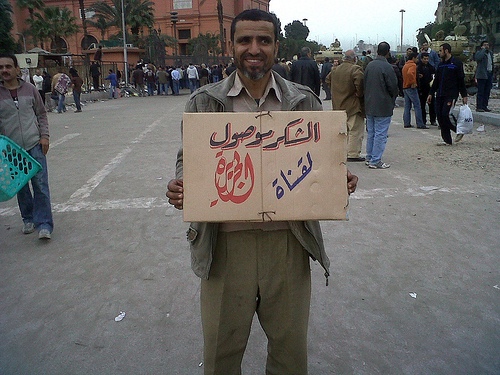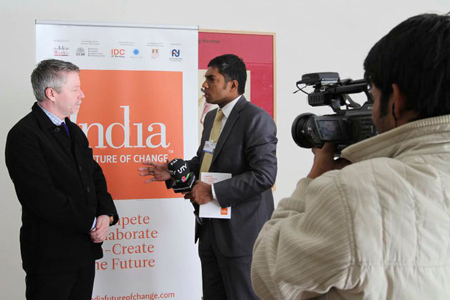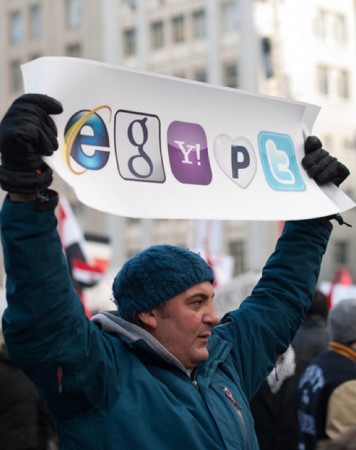The CPD Blog is intended to stimulate dialog among scholars and practitioners from around the world in the public diplomacy sphere. The opinions represented here are the authors' own and do not necessarily reflect CPD's views. For blogger guidelines, click here.
Let me begin by describing a scenario to you.
It’s Wednesday night in Costa Rica, about 8.30pm, and people in Costa Rica, as people do in most countries, are watching prime-time television. On this particular night, Costa Rica takes on their neighbors Venezuela in a soccer match and, due to the mass popularity of soccer in Costa Rica, it is drawing a large audience. Costa Rica scores, and after endless replays and analysis of a truly average goal, the action cuts to a "and here’s the reaction in China" sequence of pictures.

First, let’s be clear that this was the Egyptian Revolution, not the “Facebook Revolution” or the “Twitter Revolution.” Events of the past few weeks belong wholly to spirit of the Egyptian people, not technology. And although it was built on democratic aspirations, this was not a revolution that drew any inspiration from the United States.
WASHINGTON -- From events of the past three weeks a number of lessons can be drawn, some old and some new:
First, the phrase "the Arab street" has been redefined by Tahrir Square. We don’t need acute listening agents or polling to see what the Arab world wants.
Over the last century or so, Israelis have worked to make Israel a part of the Middle East. Israeli sabras (native born Israelis) with their argumentative attitudes; take no prisoners mentality; love for hummus, falafel and “Israeli” salad; tan skin; the yalla (let’s go) and no-translation needed ‘tseh (tongue hiss) live up to the Middle Eastern stereotypes and fit in with regional commonalities. If a tourist was dropped off in a nightclub or beach in Beirut or Tel Aviv, the only notable difference between the patrons would be the spoken language.

There seems to be a consensus that Hollywood has a huge impact on America’s image around the world. There just doesn’t seem to be any consensus on what to do about that.

The age of the image is upon us and the clock cannot be turned back. And yet the Mubarak regime is in denial. It started with muffling the voice of al-Jazeera. I was fortunate to be in Cairo during the first two days of the current uprising. On January 25 and 26, when the roads around me were starting to be blocked, when sirens and loud speakers could be heard in the areas surrounding Tahrir Square, and when both the police and protesters were mobilizing in larger numbers than ever before, I was struck by the inattention that al-Jazeera was giving the protest.
Pages
Visit CPD's Online Library
Explore CPD's vast online database featuring the latest books, articles, speeches and information on international organizations dedicated to public diplomacy.
POPULAR ARTICLES
Featured Blogger
Join the Conversation
Interested in contributing to the CPD Blog? We welcome your posts. Read our guidelines and find out how you can submit blogs and photo essays >.








